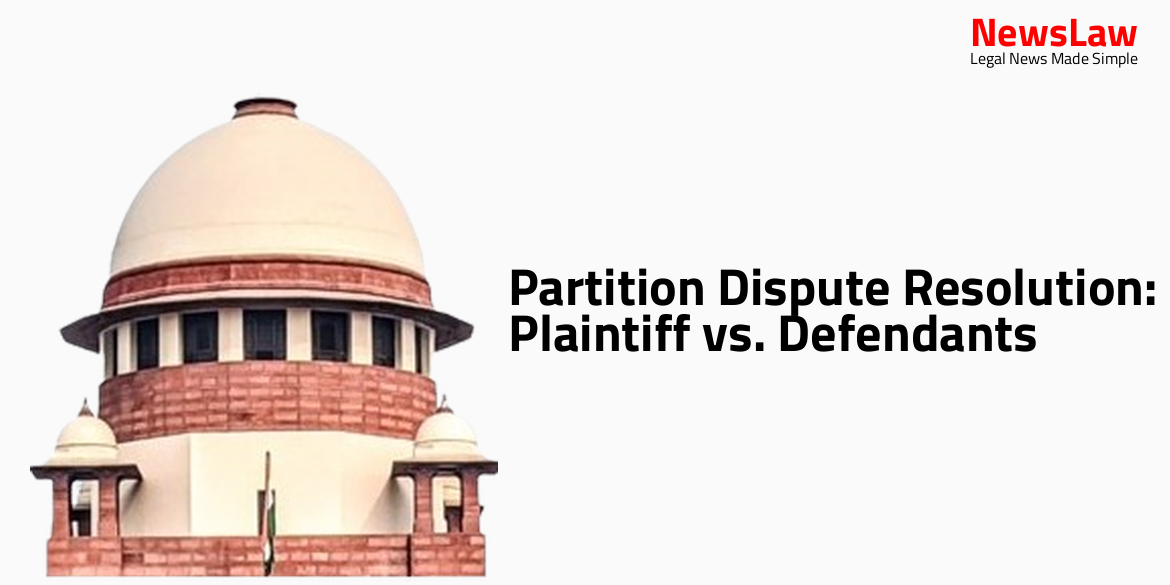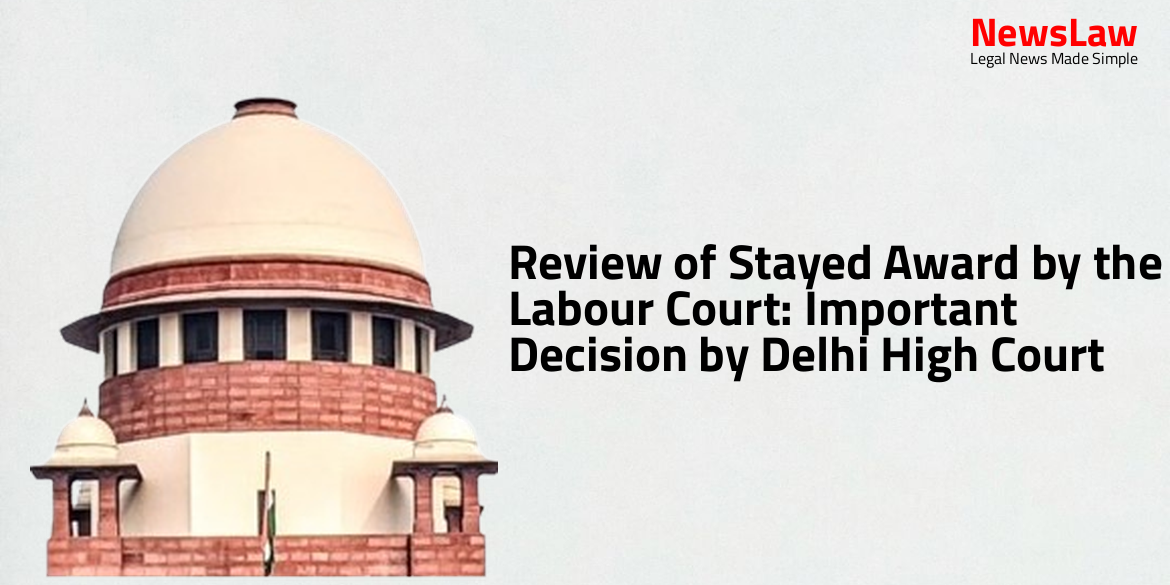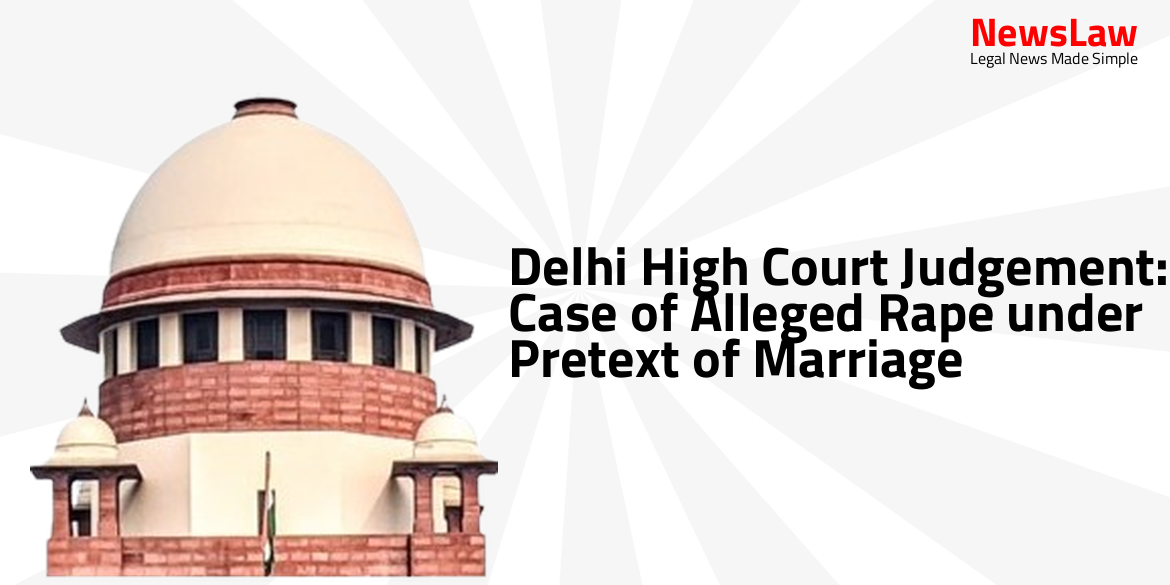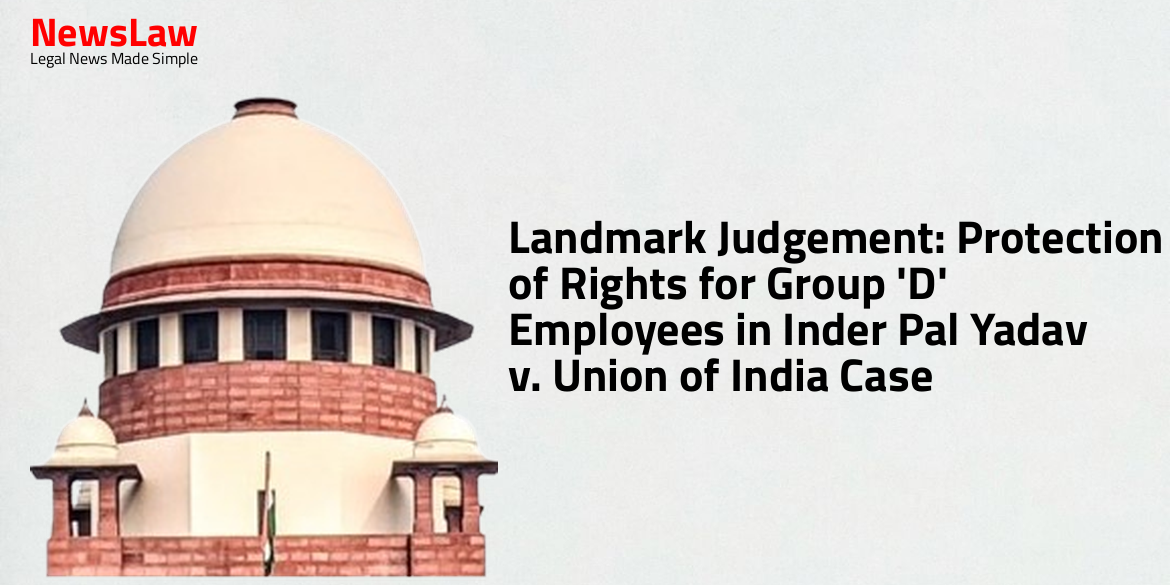In a significant legal case before the Delhi High Court, a partition dispute was settled between the plaintiff and the defendants. The court addressed the claims and counterclaims regarding the ownership and division of the suit property. The judgement has implications for property rights and the rights of co-owners. Read on to learn more about the resolution of this complex legal matter.
Facts
- The plaintiff entered into a Partition Deed dated 23.03.2015 with the defendants, agreeing to construct the Third Floor on his own expenses without causing damage to the suit property.
- A family settlement resulted in the plaintiff and defendant No.2 gifting 8.33% of their undivided share to defendant No.1, leading to a 1/3 share entitlement for the plaintiff and the legal heirs of defendant No.2.
- Despite Gift Deeds executed by the plaintiff and defendant No.2, the defendants failed to vacate the suit property as agreed upon.
- Legal notice seeking partition was met with a decline from the defendants in a vague reply.
- The plaintiff has claimed threats from the defendants when attempting to visit the suit property.
- The plaintiff asserts that an oral family settlement occurred within the family, leading to the relinquishment of shares by various family members in favor of others.
- The Ground Floor of the suit property remains in possession of defendant No.2, while defendant No.1 has possession of the First and Second Floors.
- The attesting witness to the Partition Deed confirmed its execution between the parties.
- Claims of oral family settlement are denied by defendant No.1.
- It is contended that the parties inherited the property as co-parceners and had joint and undivided shares.
- There is an agreement among the parties for the potential sale or reconstruction of the suit property into four floors with lift and stilt parking.
- The plaintiff suspects the defendants are planning to sell the property without giving the plaintiff’s entitled share.
Issue
- The issue of whether a partition deed was executed on 23rd March, 2015, wherein it was agreed that the plaintiff would construct a third floor at his own expense without causing damages to the portions where the defendants resided was examined.
- The parties had differing assertions regarding the existence and terms of the partition deed.
- The evidence presented by both parties regarding the execution and terms of the partition deed was thoroughly evaluated.
- Witness testimonies and any relevant documentation regarding the alleged partition deed were considered in reaching a conclusion.
- The court made a determination on the validity and enforceability of the partition deed based on the evidence presented.
Analysis
- Parties agreed for reconstruction of the property, which did not happen.
- Proposed construction of Third Floor did not materialize.
- Plaintiff deprived of enjoyment of Ground and First Floors.
- Partition Deed not registered, hence not considered valid for property division.
- Dispute arose between parties leading to non-registration of Partition Deed.
- Claim of ouster not established by either party.
- Plaintiff in legal possession of the property as a co-owner.
- Issue of fixed court fee vs. ad valorem court fee discussed.
- Plaintiff valued the suit for partition and paid a fixed court fee of Rs. 20.
- Ad volorem court fee under Section 7(iv)(b) of the Court Fees Act, 1870 is applicable when the plaintiff has been ousted from the enjoyment of the suit property and seeks restoration of joint possession.
- Neelavathi v. N. Natarajan (AIR 1980 SC 691) established that if the plaintiff asserts shared possession of the property for partition, a fixed court charge under Article 17(vi) Schedule II of the Court Fees Act, 1870 is sufficient.
- In cases of co-owners, the possession of one is legally considered the possession of all unless ouster or exclusion is proven.
- Plaintiff is entitled to a 25% share in the suit property
- Defendants are restrained from alienating or creating third party rights in respect of the plaintiff’s 25% undivided share in the suit property
- No accounts are to be rendered by Defendant No.1 and Defendant No.2 as they are living in the suit property
Decision
- Plaintiff and Defendant No. 2 entitled to 25% share each in the suit property
- Defendant No. 1 entitled to 50% share in the suit property
- Preliminary Decree passed in favor of the plaintiff
- Defendants restrained from creating third party rights or parting with possession of 1/3 undivided share of the plaintiff
- Listed for consideration of partition of suit property and passing of Final Decree on 7.8.2024
- Issue No. 5 decided against the plaintiff
Case Title: SHRI KAMALJIT SINGH PAHWA Vs. SHRI GURDEEP SINGH PAWHA & ANR (2024:DHC:4605)
Case Number: CS(OS)-112/2016



